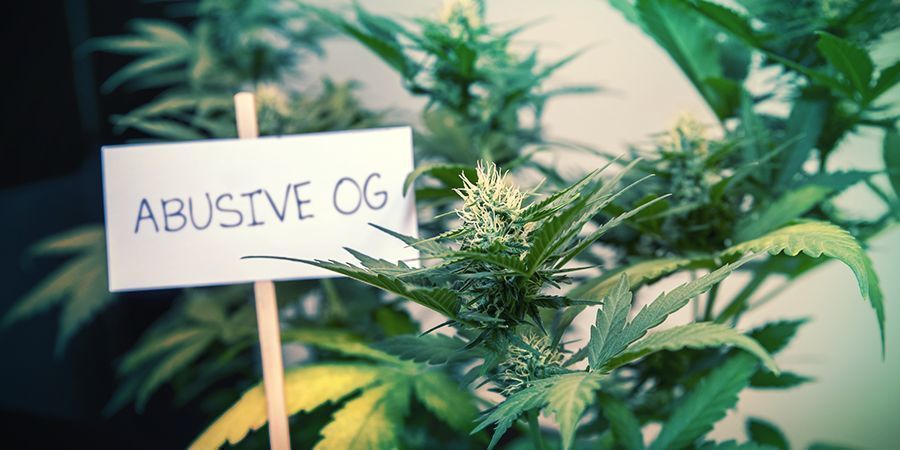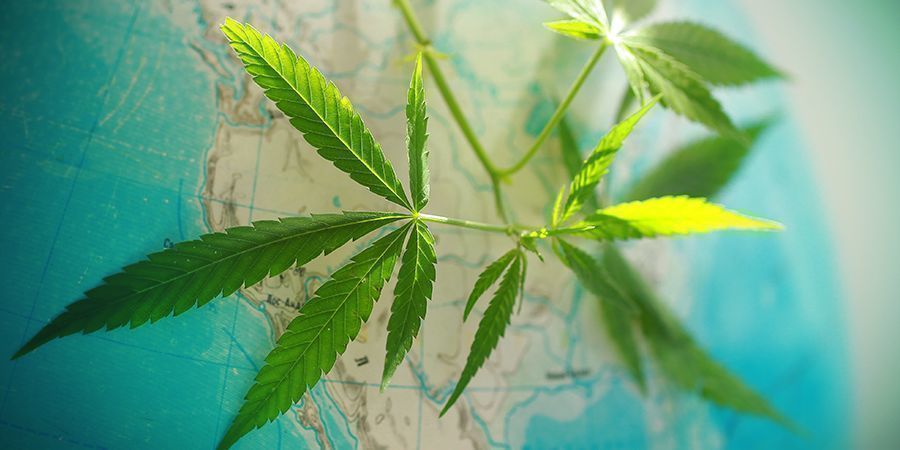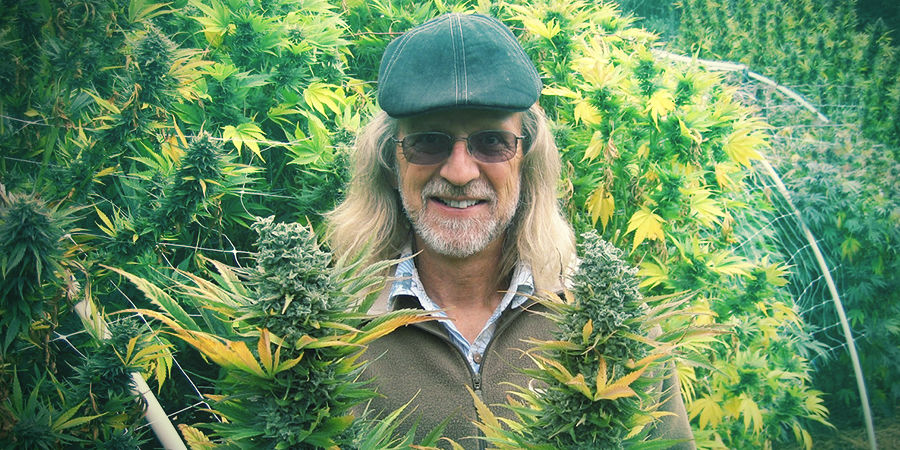
How Should We Name Cannabis Strains In The Future?
We're currently experiencing the wild wild west of the legal and semi-legal cannabis market. And nowhere does the chaos, creativity and cleverness of cannabis culture more clearly leave its mark than on the landscape of strain names. But as cannabis becomes more mainstream, will we need to develop a new system of naming?
We’ve all got our favourite strain names—good old Sour Diesel, slinky White Widow, and mystical Northern Lights. But how do these names come to be?
To answer this question, we need to travel back in time, to the origins of strain naming, and map how this practice developed over time.
HISTORY OF CANNABIS STRAIN NAMING
Strain naming started 1960s, when growers travelled around the world in search of quality genetics, all in an effort to meet growing demand. These early strains were largely named based on their region of origin—Panama Red, Durban Poison, Afghan Kush, Columbian Gold and so on.
As time went on, strains were bred to improve effects, flavour, pest resistance, and yields. Their descendants were named creatively: some for their effects, like Blue Dream, Painkiller XL and Blue Mystic. Some for their flavour, like Sour Diesel, Blueberry and Skunk. And some after celebrities, fictional characters and weed icons, like Jack Herer and Bruce Banner.
When strains are crossed to produce a new strain, their offspring is often named in such a way so as to cleverly combine elements of each parent's name. Blueberry and White Widow became White Berry. Mad Scientist and Time Wreck became Dr. Who. Granddaddy Purple and Haze becomes Purple Haze.
PROBLEMS WITH THE CURRENT NAMING SYSTEM

As you may have gathered, breeders use some conventions when naming strains, but overall the process is fairly arbitrary. This can be charming when growers give their strains clever names like the ones above, but can be less so when they choose names like Purple Monkey Balls, Abusive OG, and Cat Piss (all real strains).
Even when breeders pick quality names, the lack of guidelines can create confusion. This can be innocent, as when unrelated strains are given similar names, but it can also be deliberate; in the 1990s, various strains popped up with the word “Diesel” in their name, in order to give the false impression that they were related to the supremely popular Sour Diesel. Worse still, there’s nothing stopping an unethical grower from dubbing a strain with the name of a more popular and valuable one.
With the boom in cannabis cultivation, and the proliferation of new strains from around the world, many are suggesting that cannabis community should adopt a more standardized naming system.
JORGE CERVANTES AND THE PATH TO STANDARDIZED GENETICS
Jorge Cervantes is a celebrated cannabis writer and researcher. His first book, “Indoor Marijuana Horticulture” won the 2015 Gold Benjamin Franklin Award, and has been translated into six languages. He champions Phylos Bioscience, an Oregon-based company he believes may be pointing us towards the next paradigm in standardizing cannabis genetics.
Phylos Bioscience are dedicated to “genetic certification for the cannabis supply chain,” and are constructing an intensive open-source map of cannabis genetic relationships. They also perform genetic testing of strains, allowing growers, sellers and consumers alike to verify what they’re actually holding.
Cervantes says: “I really love what Phylos Bioscience is doing. They’re pulling in information from as many sources as they can, and in doing so they’re helping everyone. I think everybody should participate in this genome registration.”
He goes on, “If you don’t have those actual varieties sorted, there’s no consistency. You’re selling medicine you can’t register. Before it worked, but now it’s far more sophisticated.”
A WAY FORWARD FOR STANDARDIZING STRAIN NAMES?
Allowing for precise genetic mapping will prevent breeders from to implying that their strain is something other than it really is. It could also point the way towards a standardized system of naming. Phylos’ galaxy map suggests a way forward: different “clusters” of related strains should be named after the genetic markers they share. Could this evolve into a standardized naming system? Might breeders have to sequence their strain before being allowed to put “Kush,” “Diesel,” or “Jack” in the name?
Could copyright law come to play a larger role in the world of cannabis naming? Copyright law has already touched cannabis names in the case of GSC, formerly known as Girl Scout Cookies. The breeders were forced to change the strain name due to legal threats from the Girl Scouts of America. We can imagine a scenario where breeders trademark names, and sell the rights to elements of those names. We’re already seeing breeders branding their versions of certain strains with their company name. It’s only a small step towards copyrighting the strain names themselves.
We can imagine more draconian possibilities, where genetic labs themselves assign names to strains, based on 100% standardized scientific formulas. Genetic labs might send back strains to breeders with short notes: “Congratulations. You have bred Blue Kush 38-D.” This would take the fun out of things, but it could lead to better consumer protection.
This leads to a further question: who would enforce these standards? Would the industry regulate itself, or would the government regulate it? If the industry doesn’t come up with a solution, the increasing availability of genetic testing could result in lawsuits: consumer buys White Widow, this White Widow turns out to have 0% White Widow genetics, the consumer sues the dispensary, and the dispensary sues the breeder. The result of this mess could introduce government-determined naming conventions for cannabis. Anyone who’s watched politicians debate weed knows this outcome won’t be ideal. As such, perhaps the industry should try to come up with clear standards for naming and genetics, while it still has the chance.
- (n.d.). Search the Phylos Galaxy - https://phylos.bio
-
 5 min
September 18, 2023
Landrace Strains: The Oldest Cannabis Strains
Landraces can be traced back many centuries to their respective continents and countries. Still, it wasn't until fairly recently that these strains were exported and became the backbone of the...
5 min
September 18, 2023
Landrace Strains: The Oldest Cannabis Strains
Landraces can be traced back many centuries to their respective continents and countries. Still, it wasn't until fairly recently that these strains were exported and became the backbone of the...
-
 6 min
February 6, 2018
Top 7 Original Cannabis Strains And Their Creators
In this article, we take a close look at the origins of 7 of the most iconic cannabis strains to ever hit the market. These include GG#4, Amnesia, Blueberry, Cheese, AK-47, Skunk, and Northern Lights.
6 min
February 6, 2018
Top 7 Original Cannabis Strains And Their Creators
In this article, we take a close look at the origins of 7 of the most iconic cannabis strains to ever hit the market. These include GG#4, Amnesia, Blueberry, Cheese, AK-47, Skunk, and Northern Lights.








 United States
United States











